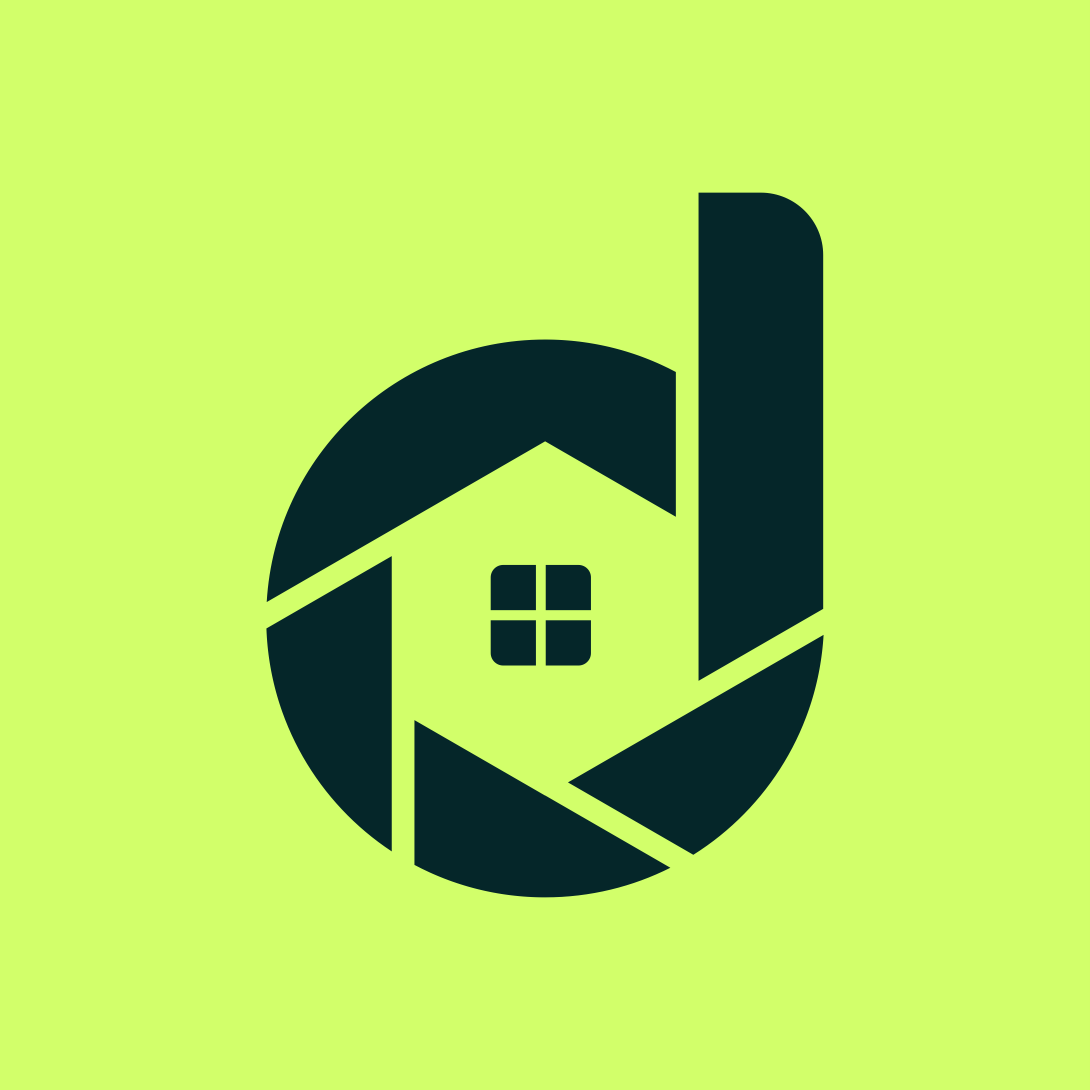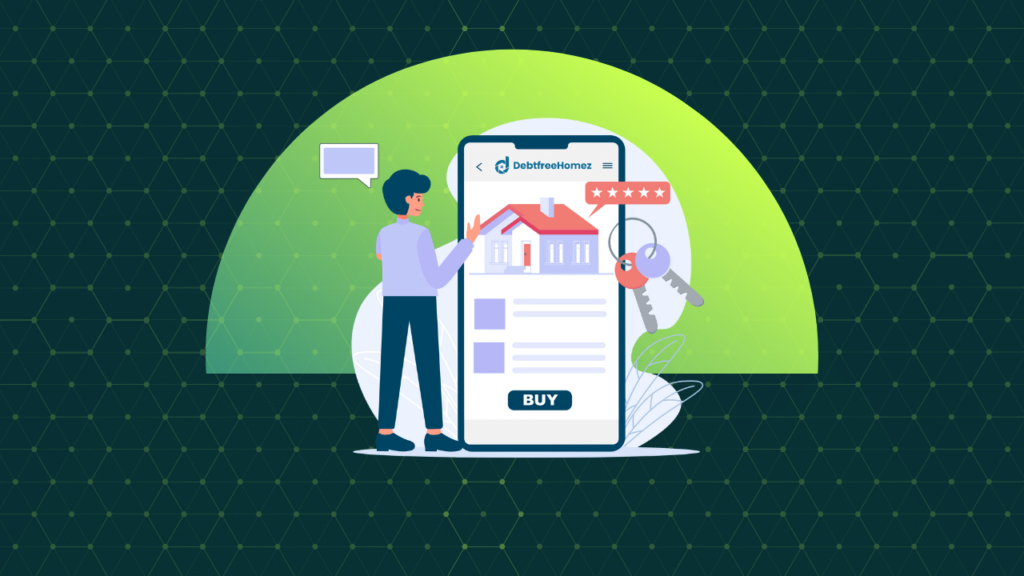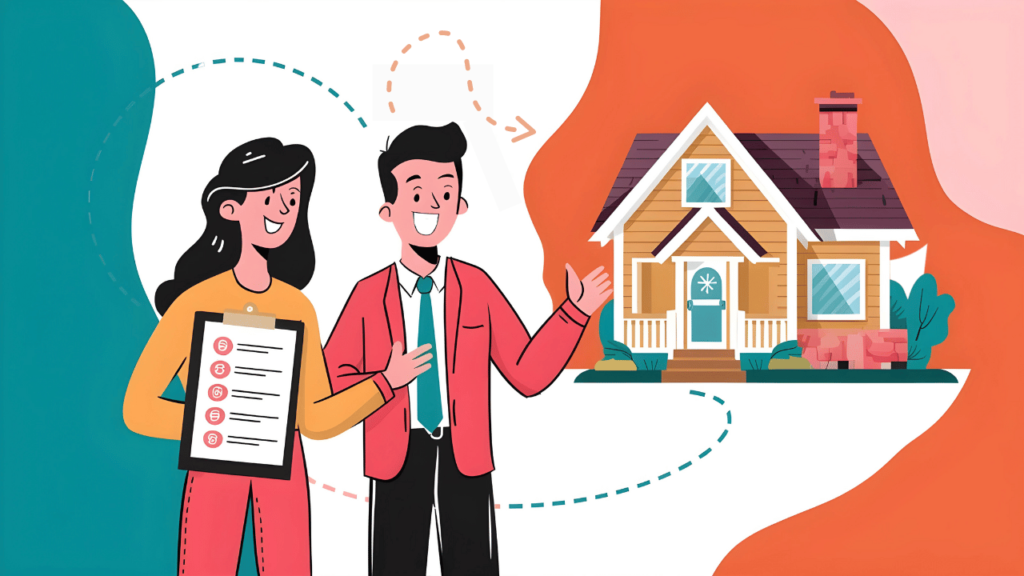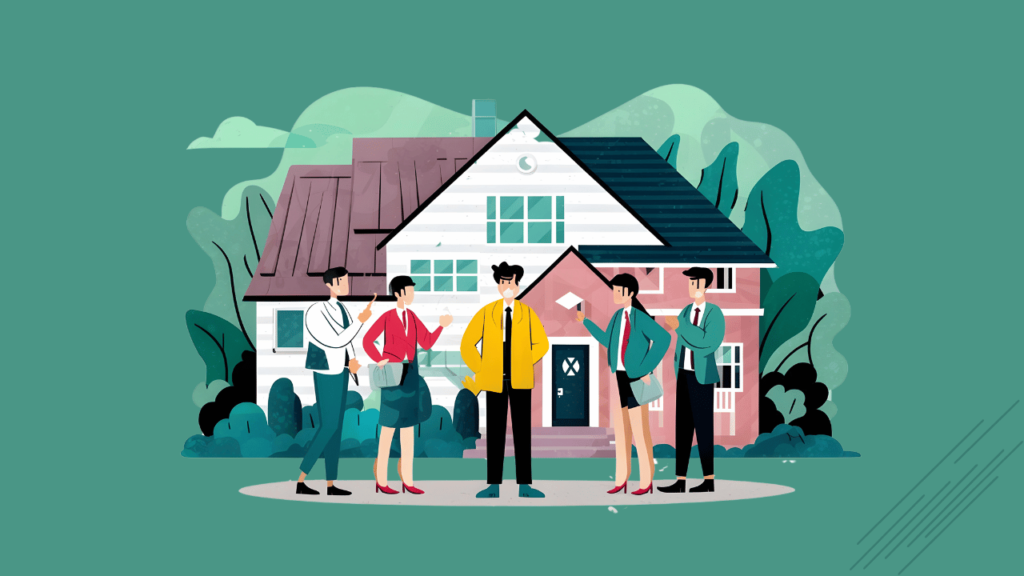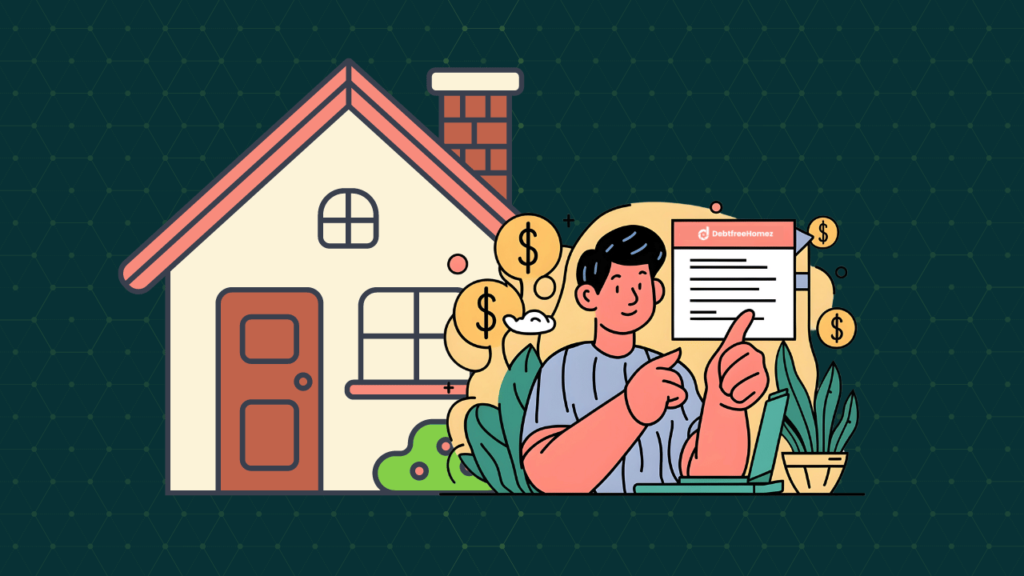Mortgage loans are costly, but now there’s a better way to buy your home and save more doing so.
We all dream of one day owning our own home as homeownership is still one of the most viable tools for generational wealth-building. But for many, that dream is more like that of a nightmare as homebuying is becoming increasingly more unaffordable by the day. Home prices are soaring and interest rates are at staggering levels. Without a sizeable down payment and an excellent credit score, becoming a homeowner without a mortgage remains out of reach for far too many.
Even with the massive upfront costs of obtaining a hefty mortgage, buyers still spend thousands over the lifetime of their loan on monthly interest fees. Is this really the dream that so many of us seek?
While millions of homeowners sink under the weight of massive debt, you no longer have to bear this burden. Buying a home with a traditional mortgage loan is no longer the only pathway to homeownership with a new revolutionary model for homebuying with debtfreehomez.com. Now you can finally own your own home without a mortgage and save more in the process. Here’s how:
The Traditional Mortgage Loan Pathway to Homeownership

Traditional mortgage loans are costly and riddled with fees that add up to unseemly numbers, and many first-time buyers are completely unaware of the total costs of a traditional mortgage. Here’s what you can expect:
Large Down Payments
The first hurdle to overcome in the mortgage process is saving for an exorbitant down payment. The most common benchmark for a down payment is 20% of the home price. Oftentimes, this number alone prevents some from ever achieving the dream of homeownership. Additionally, having to settle for a lower-cost home that does fall within that price range may mean sacrificing desirable features in your home, and could even require thousands of dollars on the back end for costly repairs and more frequent maintenance expenses.
High Interest Rates
Being unable to front a 20% down payment doesn’t always put the dream out of reach. Some lenders are willing to work with a smaller down payment, but buyers will still suffer additional costs with higher interest rates. Even a fraction of a percentage rate increase could mean paying thousands more over the lifetime of the loan.
Private Mortgage Insurance
Mortgage loans like these that don’t meet the 20% down payment mark also often require Private Mortgage Insurance (PMI) which forces the buyer to spend more on monthly insurance fees until that 20% loan-to-value ratio has been met. This adds a layer of protection for the lender, but it also adds more to the monthly costs of your mortgage and ultimately the overall expenses to own your own home.
Additional Fees and Closing Costs
Many prospective homebuyers can be taken aback by the amount of fees that pop up throughout the process of buying a home with a traditional mortgage loan. Buyers get slapped with origination fees just for processing the application and underwriting the loan. There’s also the appraisal fee that covers the cost of assessing the property value. And then at the time of closing, new buyers will also face costs like title search and insurance fees, attorney fees, and recording fees. There may also be further miscellaneous expenses when finalizing a loan like covering prepaid property taxes and homeowners insurance, or even agent fees and commissions as well. Overall, these fees could add up to between 2% and 5% of the total amount of the mortgage loan!
Investment Opportunity Costs
In addition to the hefty upfront costs of the down payment and the lofty fees and interest rates that homebuyers face, there are also the hidden costs of the savings and investment gains a homebuyer might be missing out on. Many homebuyers might choose to use savings from their investment accounts to afford the down payment and mortgage costs. This drastic step not only leaves buyers feeling as if they’re starting over from scratch working toward retirement, but it also exponentially reduces the amount of money an investment account could ultimately return in the long term, not to mention the tax liabilities that might be incurred for early withdrawals.
Buying a Home Debt-Free

Thanks to DebtfreeHomez.com, the costly traditional mortgage route is no longer the only pathway to living the dream of homeownership. Here’s how you can save:
Low-Cost Application Fee
Rather than the costly mortgage loan origination fees, debtfreehomez.com users enjoy a much lower barrier to entry. After signing up and getting prequalified, getting started with debtfreehomez.com requires only a $20 application and interview fee. This simple approach alone could save hundreds or even thousands just on the approval process.
Monthly Dividends
After onboarding into the debtfreehomez.com ecosystem, users are subscribed to the Subscription 1+2 program which utilizes the subscription amount as a unique form of investment that pays a 1% or 2% monthly return. New users in the ecosystem can get started with as little as $500 and begin earning that monthly dividend.
Lower Down Payment
Once a new user has been approved to join the ecosystem and is enrolled in the Subscription 1+2 plan, customers are given a budget to shop with based on details discussed in their interview. Customers can now go shopping for their new home. Upon deciding on a home to purchase, new homebuyers will only need at least 10% of the value of the home, and debtfreehomez.com covers the rest.
No Interest Fees
Unlike a traditional mortgage loan where homebuyers have to pay more to borrow the money, debtfreehomez.com provides an interest-free model for homeownership. Upon purchasing the home, new owners will pay the remaining balance over a term of up to 30 years, completely interest-free.
Continued Savings Growth
Without the massive down payment, interest, and miscellaneous fees that come with a traditional mortgage loan, homebuyers can enjoy the benefits of the additional savings by putting it toward their investments, keeping that money in their pockets where it belongs. Along with the monthly dividends from the Subscription 1+2 plan, new homeowners can reinvest their savings more wisely with stocks, bonds, or mutual funds all while earning the equity on their very own home.
Conclusion
Traditional mortgages aren’t just expensive, they’re also a headache, energy-intensive, and time-consuming. They cost borrowers thousands of dollars in large down payments, high interest rates, and fee after fee after fee.
But first-time homebuying doesn’t have to be a stressful, unpleasant experience that drains your savings and your sanity just for a shot at the dream of becoming a homeowner. With debtfreehomez.com, you can finally make your dreams a reality by owning your own home all while maximizing your savings and investment returns.
Set yourself up for success today with debtfreehomez.com and upend the traditional mortgage loan industry. Click below to get started today.
Sources:
“Buying a Home.” Department of Housing and Urban Development. www.hud.gov/topics/buying_a_home. Accessed 3 Mar. 2024.
Marietta E.A. Haffner, Rachel Ong, Susan J. Smith & Gavin A. Wood (2017) The edges of home ownership – the borders of sustainability, International Journal of Housing Policy, 17:2, 169-176, DOI: 10.1080/19491247.2017.1289717
Tracy, Melissa Dittmann. “Study: Homeowner Wealth is 40 Times Higher Than Renters.” National Association of Realtors. 18 Apr. 2023, www.nar.realtor/magazine/real-estate-news/study-homeowner-wealth-is-40-times-higher-than-renters. Accessed 3 Mar. 2024.
Treece, Dock David. “Mortgage Closing Costs Explained: How Much You’ll Pay.” Forbes. 3 Sep. 2020, www.forbes.com/advisor/mortgages/closing-costs/. Accessed 3 Mar. 2024.
“What costs will I have to pay as part of taking out a mortgage loan?” Consumer Financial Protection Bureau, www.consumerfinance.gov/ask-cfpb/what-costs-will-i-have-to-pay-as-part-of-taking-out-a-mortgage-loan-en-153/. Accessed 3 Mar. 2024.
“What Is Private Mortgage Insurance?” Consumer Financial Protection Bureau, www.consumerfinance.gov/ask-cfpb/what-is-private-mortgage-insurance-en-122/. Accessed 3 Mar. 2024.


